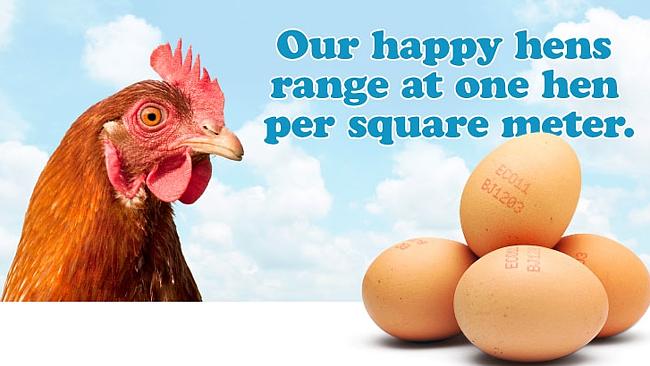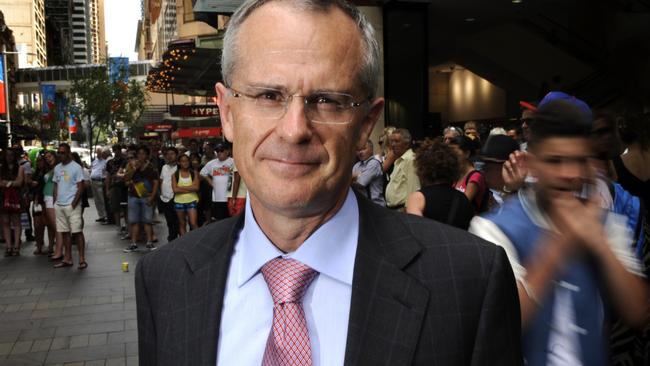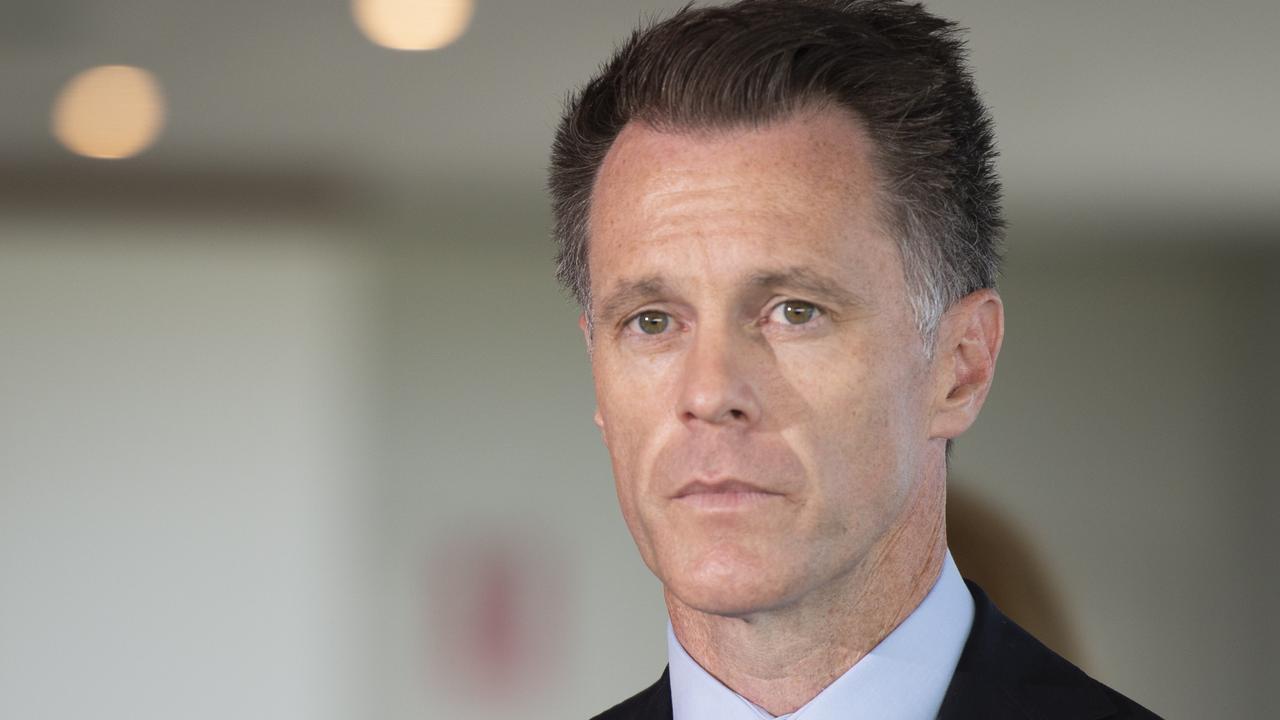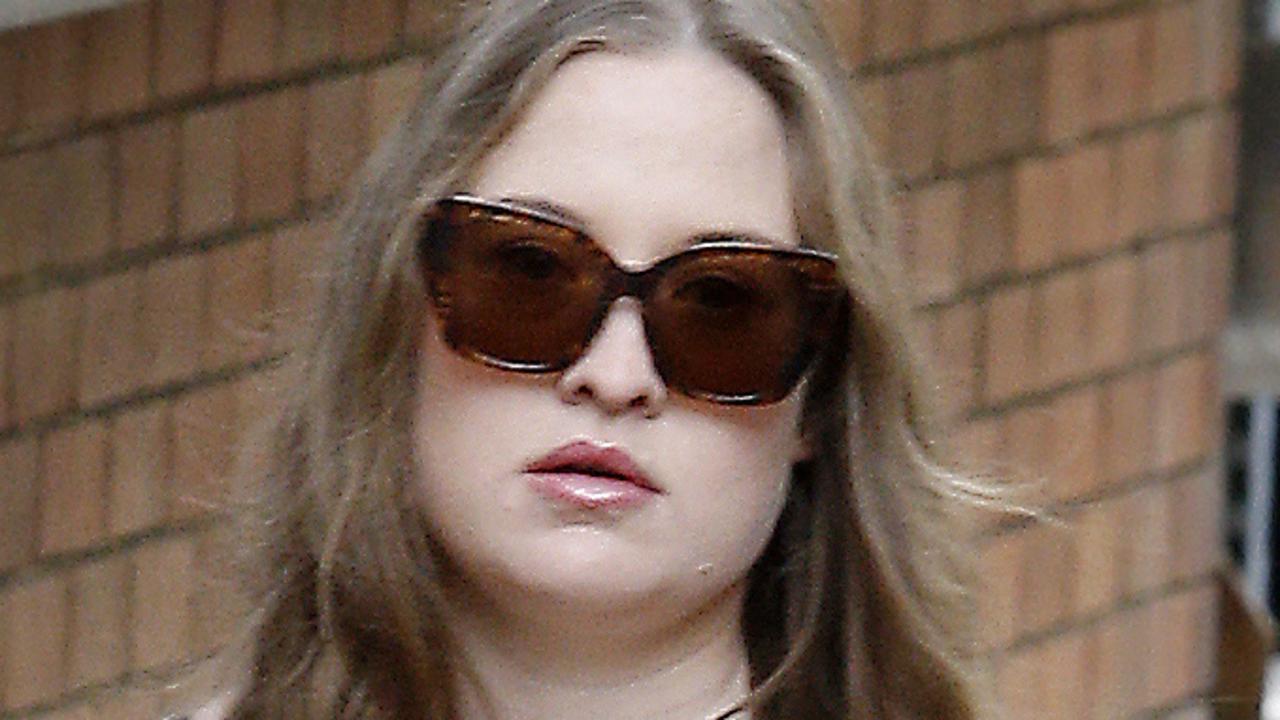Free Range Egg Farms fined $300,000 for misleading ‘free range’ claims
AN EGG brand once dubbed Australia’s shonkiest has been ordered to pay a $300,000 penalty for misleading “free range” claims.

THE Federal Court has ordered an egg producer to pay a $300,000 penalty for making misleading claims about “free range” eggs.
Derodi Pty Ltd and Holland Farms Pty Ltd, trading together as Free Range Egg Farms, is the third producer to be whacked in the consumer watchdog’s egg industry crackdown.
Last year Darling Downs Fresh Eggs was fined $250,000, and in 2014 Pirovic Enterprises Pty Ltd was ordered to pay $300,000.
According to the ACCC, between January 2012 and December 2014, Free Range Egg Farms supplied eggs labelled “free range” under the Ecoeggs brand, and promoted the eggs as “free range” online, on social media and in magazine advertising.
The court found that the company had contravened Australian Consumer Law by representing that the eggs were produced by hens which were able to, and did, move about freely on an open range on an ordinary day when this was not the case.
The hens from some of the farms that supplied eggs to Free Range Egg Farms did not move about freely on most days “because of the conditions in which the laying hens were kept ... [including] the flock size in the barns in combination with the size, placement and use of the physical openings to an open range”.
In his judgment, Justice James Edelman noted the conduct concerned “representations upon which consumers were heavily reliant” and the loss and damage suffered by consumers and competitors of Free Range Egg Farms is likely to be significant.

“[The] words ‘free range’ are now very well known,” he said. “They involve a representation with real content which, in this case, was coupled with powerful pictorial and verbal imagery.”
ACCC Chairman Rod Sims said “free range” claims were powerful tools for businesses to distinguish their products, and consumer were willing to pay a premium on “understanding that they are getting something different to ‘cage’ and ‘barn laid’ eggs”.
“Where free range egg claims are not true, consumers are harmed and, as important, other egg suppliers who are producing eggs that are genuinely free range are disadvantaged,” Mr Sims said in a statement.
“This decision reinforces the position the ACCC has taken that any free range egg claim must be backed by farming conditions which allow hens to actually move about on an open range each day.”
In March, state and federal consumer affairs ministers agreed to the introduction of a national standard definition of “free range” under Australian Consumer Law.
The new information standard, hoped to be in place within 12 months, will require eggs labelled as “free range” to have been laid by hens with “meaningful and regular access to the outdoors and with a maximum outdoor stocking density of 10,000 hens”.
Free Range Egg Farms must also place corrective ads in The Sydney Morning Herald, The Age and The Daily Telegraph newspapers within 21 days.
In 2013, Ecoeggs was crowned the People’s Choice Shonkiest Shonky by consumer group Choice over its free range claims.
In a statement, a spokeswoman for Free Range Egg Farms said the decision “related to whether chickens ranged free from one of FREF’s four farms and one individual shed at another of its farms, over a finite period of time some years ago”.
“The ACCC’s allegations related to a time when the egg industry and FREF was seeking a code and formal guidance on free range standards and at a time when FREF’s farms were fully AECL accredited and NSW Food authority certified during the relevant period,” she said.
“The ACCCs case was limited to one farm which FREF had ceased to work with before the proceedings were instituted and one single shed at another farm that was already in the process of substantially improving its practices.
“FREF was disappointed not only by the court action brought against it but also that it was never offered an option to mediate prior to the institution of costly legal proceedings.
“Mediation only arose after proceedings were well and truly underway. Despite this, FREF has fully co-operated with the ACCC’s investigation and has resolved the matter in a compromise by both FREF and the ACCC.
“As a family business with limited resources, FREF settled the matter so it could return to focus on its farming operations and the provision of quality free range eggs to its customers.
“Unlike some other ACCC proceedings concerning free range egg labeling, the ACCC did not allege that FREF never let its hens outside.
“Rather, there were some occasions when hens were not allowed outside on isolated barns over a short period of their life, and these were occasions of adverse weather and resulting infrastructure challenges, which required the confinement of hens due to substantially increased bio-security risks to the hens and their eggs.”
Claire Fryer, campaign coordinator with People for the Ethical Treatment of Animals (PETA), said “free range” labelling was designed to help egg producers, not chickens.
“Hens on many free-range farms are crammed into filthy, stinking sheds and ‘pastures’ with thousands of other chickens,” she said.
“Male chicks are still suffocated to death or ground up alive because they are of no use to the industry. Hens often still have parts of their sensitive beaks sliced off with a hot blade. The only label that consumers can trust is cruelty-free is the one that reads ‘vegan’.”




